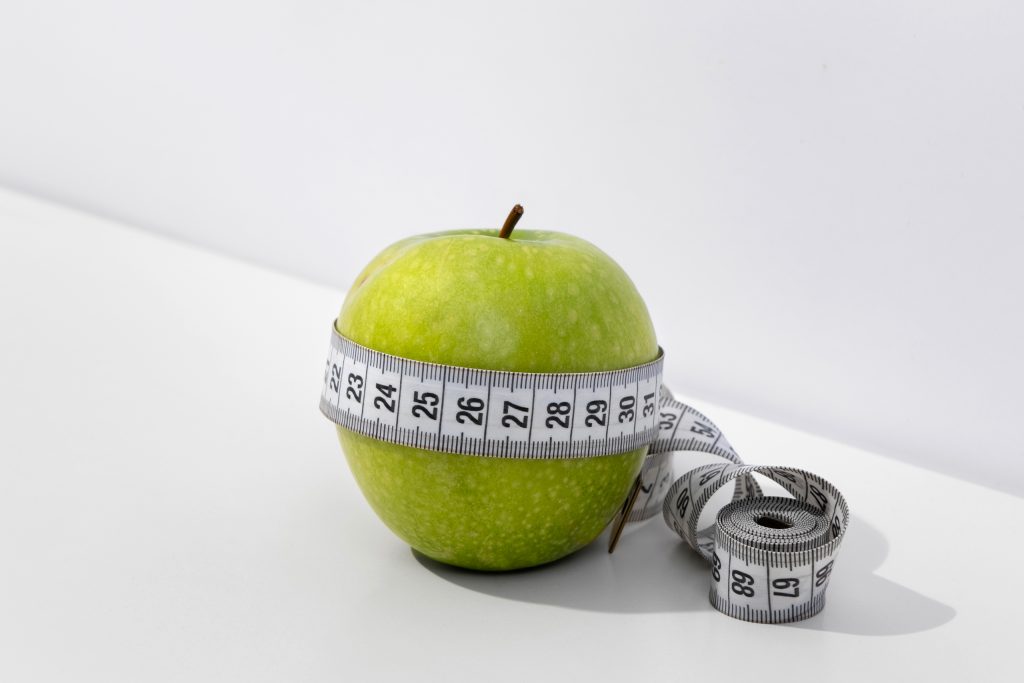CONTACT US: 0919 058 5858 | 02 899 51920
CONTACT US:
0919 058 5858 | 02 899 51920
The buzz around calorie deficit is growing in the Philippines. Content creator and podcaster Dani Baretto and actress Kylie Verzosa are just some of the Filipino personalities who have shared their fitness journey through calorie deficit. Read more to know why this weight loss strategy is gaining such traction.

Calories are units of energy derived from the food and drinks that you consume. They are broken down during digestion, releasing energy and giving your body the power it needs to perform day-to-day functions and activities, such as breathing, walking, running, eating, digesting, sleeping, and so on.
However, your body may not always need all that energy after eating, so it stores that excess energy for later use. If you take in more calories than you burn, those excess calories can accumulate, leading to weight gain.
The goal of a calorie deficit is to consume fewer calories and burn more through physical activity. If done consistently, your body will store less overall fat, leading to weight loss over time.

There is no one-size-fits-all when it comes to daily calorie requirements. The number of calories that a person needs may depend on the following factors:
Example: For a 30-year-old man, daily calorie needs are approximately 2,400 (sedentary), 2,600 (moderately active), and 3,000 (highly active). For a 30-year-old woman, the estimates are around 1,800 (sedentary), 2,000 (moderately active), and 2,400 (highly active).
Check out Medical News Today for an estimated calorie requirement table for ages 19 years and above.

Generally, as you age, you need fewer calories. You can create a calorie deficit by lowering your calorie intake, increasing your physical activity, or a combination of both. While not everyone requires a calorie deficit, it can help individuals who want to lose weight.
WebMD shares that for healthy and sustainable weight management, aim for a daily deficit of about 500 calories. This can lead to a weight loss of around one pound (0.45 kilograms) per week. This recommended calorie deficit assumes a starting point of at least 1,200 – 1,500 calories daily for women and 1,500 – 1,800 calories daily for men.
According to Healthline, a great way to help you maintain a calorie deficit is by eating a well-balanced diet consisting of whole foods and engaging in physical activity for at least 150 minutes per week.
Be mindful of your calorie intake because cutting too much or consuming significantly fewer calories than your calorie requirement can lead to nutritional deficiencies. It is best to talk to your doctor before engaging in a weight loss plan, especially if you have health issues.

Calorie Counter apps such as MyFitness Pal, Lose It!, and FatSecret are valuable tools that can help you in achieving and maintaining a calorie deficit. Here are some functionalities of calorie apps:
Calorie deficit can be a safe and sustainable weight loss strategy through mindful eating and increased physical activity, or a combination of both. Individual calorie requirements may vary, so it’s important to be aware of the factors that affect daily calorie needs. Fortunately, calorie apps have made it easier and more convenient to track calorie intake and fitness activity, calculating your calorie goals and monitoring your progress. For individuals with pre-existing health conditions, it’s best to consult a healthcare professional to ensure a safe and appropriate weight loss plan.
Medicare Plus supports your fitness journey. We understand that pursuing wellness is a proactive choice, and being prepared for unexpected situations is a crucial part of safeguarding your overall well-being. That’s why we encourage you to consider ER Guard, an affordable Emergency Prepaid Health Card available in the Philippines.

Easy access health plan options for the Filipino community.
We know finding the right healthcare plan can be a complex and confusing task.
Our health plan specialists are always here to help 24/7.
Got more questions?